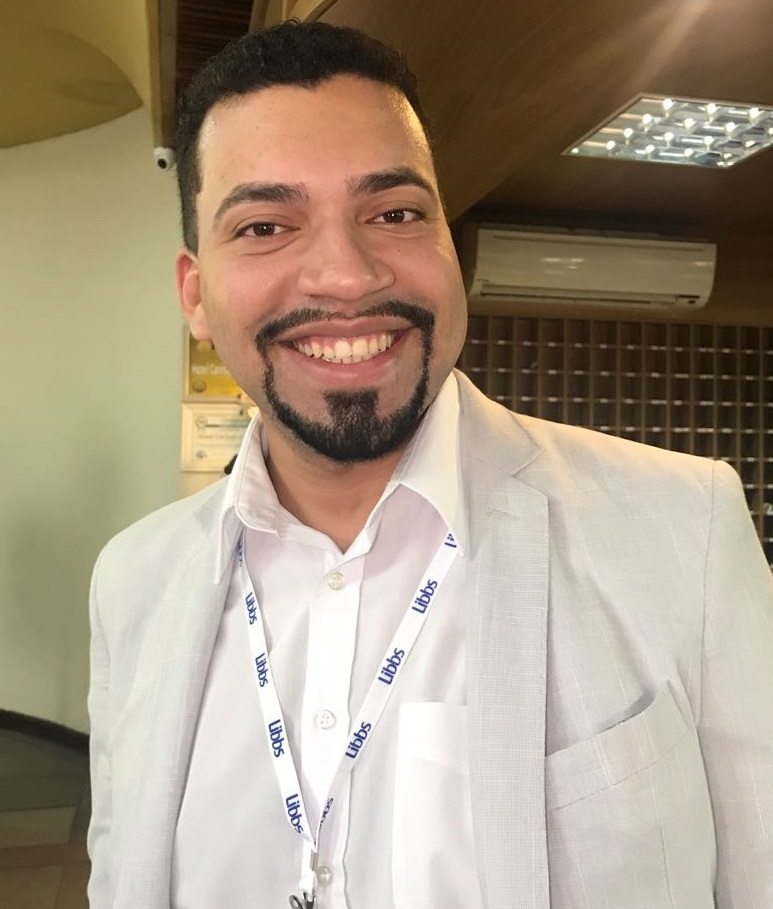
Professor of the Undergraduate Nursing Course in the Management and Leadership disciplines I, II and III of the Albert Einstein Israelita Faculty of Health Sciences - FICSAE. PhD Candidate of Nursing Management of the School of Nursing, University of São Paulo (EEUSP). Specialist in residence modality in Nursing Services Management at the State University of Londrina (UEL). Nurse by the Cesumar University Center - UniCesumar. Did paid internship at the Organ Procurement Organization - OPO Maringá, linked to the State Transplant System of Paraná (SET/PR). Develops research and projects in the areas of: Management of actions and nursing and health services, Evaluation and Quality in Health, Organ and Tissue Donation and Transplantation.
Fatigue and resilience in organ and tissue transplant patients facing the pandemic of COVID-19
Rafael Rodrigo da Silva Pimentel1, Izabel Alves das Chagas Valóta2, Marcelo José dos Santos1, Ana Lucia Siqueira Costa Calache2, Luis Manuel Blanco Donoso3.
1Professional Guidance, University of São Paulo School of Nursing, São Paulo, Brazil; 2Medical-Surgical Nursing, University of São Paulo School of Nursing, São Paulo, Brazil; 3Faculty of Psychology of the Autonomous University of Madrid (UAM), Madrid, Spain
Background/Aims: For organ and tissue transplant recipients, the pandemic of COVID-19 caused several uncertainties, especially the fear of contagion, which may have been one of the stressors. On the other hand, when facing this adversity situation, some transplant recipients, overcome it beneficially, performing their resilience. The objective of this study is to analyze the fatigue and resilience of organ and tissue transplant recipients in the pandemic of COVID-19 in Brazil.
Methodology: Cross-sectional study, carried out with organ and tissue transplanted patients in Brazil. The inclusion criteria were: patients who performed organ and tissue transplantation at least three months ago in the pandemic. Data collection occurred through disclosure in social networks and web pages between January and April 2021, with the instruments: sociodemographic and clinical data questionnaire, Wagnild and Yong's resilience scale and the pictogram of fatigue. The data were organized after importing Microsoft Excel spreadsheets from REDCap. The analysis was performed using descriptive and inferential statistics, adopting statistical significance of p<0.05. The study was approved by an institutional ethics committee and complies with national and international guidelines for research with human beings.
Results: 548 organ and tissue transplant recipients participated in the study. The mean age of transplant recipients was 45.58 years (SD: 56.40), 325 (59.31%) were mostly female, 318 (58.03%) were white, 280 had completed higher education (51 .57%) and from the Southeast region 338 (61.68%). The mean time of transplantation was 6.95 years (SD: 6.83) and the occurrence of fatigue was 4.27 months (SD: 12.05). The rinse transplants 320 (58.39%), liver 131 (23.91%), heart 27 (4.93%) and cornea 21 (3.83%) stand out. Flexibility transplants were more resilient and corneal transplants were more fatigued. Individuals who perform informal work and had no other symptoms were more resilient (p=0.022, p<0.001, respectively). Females had their fatigue intensity classified as “moderately tired” (p<0.001) and those with a partner as “a little tired” (p=0.021).

Conclusion: The stressors arising from the pandemic moment may have led to an increase in fatigue and moderate performance of resilience in organ and tissue transplant patients, which indicates a need for health professionals to support and carry out stimulus programs to increase resilience and fatigue reduction.
We thank all the transplant recipients who took the time to answer the survey. This study was financed in part by the Coordenação de Aperfeiçoamento de Pessoal de Nível Superior – Brasil (CAPES) – Finance Code 001.

right-click to download
